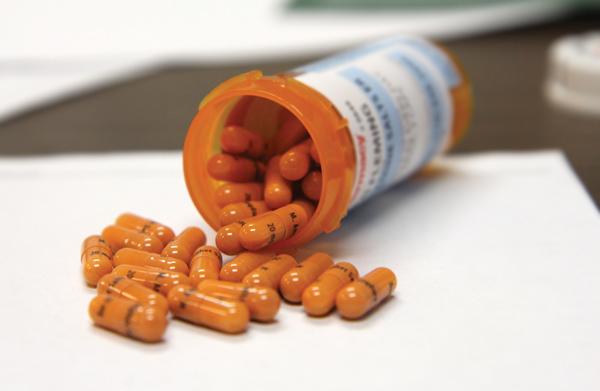
As the end of the semester nears, some students turn to prescription drugs — like Concerta, Vyvanse and, more commonly, Adderall — to increase their focus level and work longer hours.
The drugs are intended for the treatment of Attention Deficit Disorder (ADD) and Attention Deficit Hyperactivity Disorder (ADHD), as well as narcolepsy, but many college students use drugs like Adderall as a study aid.
The drug Adderall is readily available on campus.
“You can get Adderall anywhere,” said a junior majoring in business and finance, who, like most students quoted in this article, requested anonymity to speak frankly about an illegal practice. “Just walk up to anyone on campus and ask ‘do you know where I can get Adderall?’ and they’ll be able to tell you. I’d say 70 percent of the people in the [Glenn G. Bartle] Library are on it.”
A 2010 study published in the journal Addiction found that 25 percent of students enrolled at 119 competitive American universities had used the drug as a study aid.
Adderall is an addictive substance, especially when used and abused over a prolonged amount of time. Students who abuse Adderall put themselves at risk for stroke, heart attack, psychosis and seizures. The use and possession of substances not prescribed to the user is punishable under the federal Controlled Substances Act and may result in jail time.
David Werner, an assistant professor of psychology at Binghamton University, said the use of prescription drugs as study aids is dangerous.
“One, it’s illegal, that is the biggest problem,” Werner said. “Two, people are taking it and haven’t consulted someone about the ramifications and don’t know the interactions it could have.”
Werner also noted that there is an element of fairness that should be considered with the use of these drugs.
“People [who have a prescription] are taking them because they need them,” Werner said. “When people are taking them and they’re not prescribed, it’s like you’re giving yourself an advantage. I always like to use the analogy of using steroids in sports. Is it really fair? And the answer to that is no.”
Students reported that they paid $5, $10 or $15 a pill — depending on its size — to people ranging from drug dealers and acquaintances from home to peers on campus who have the drug prescribed to them, though some students with prescriptions simply provide Adderall to roommates and friends for free.
A sophomore majoring in electrical engineering acknowledged that he appreciates Adderall.
“It helps me focus, helps me stay awake, makes me think a lot,” he said. “It’s helpful.”
He added, however, that Adderall is “definitely not something people should take frequently.”
Some use the drug to study, whereas other students use it when they have large reading assignments or have to write a long paper.
“I don’t use them to study, I use them to read or write papers,” said a sophomore majoring in human development.
But he also added a note of caution.
“During my freshman year someone told me, ‘Adderall is like an old wife. Great at first, then she drives you crazy,'” he said.
Werner said students have other study options.
“Students are looking for an edge, looking for an easy way out,” Werner said. “They may panic and feel they may need something to help them. If they’re going to do well on exams and retain information, then old-school methods are best.”
Alexander Weinberg, a junior double-majoring in psychology and biology, agreed that Adderall was unnecessary for studying.
“I’m not surprised that so many people use [Adderall],” Weinberg said. “They think it actually helps, but it doesn’t.”


